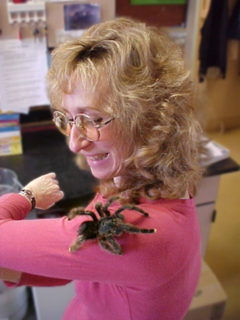A Quote by Carl Sagan
The uniqueness of humans has been claimed on many grounds, but most often because of our tool-making, culture, language, reason and morality. We have them, the other animals don't, and -- so the argument goes -- that's that.
Related Quotes
Humans — who enslave, castrate, experiment on, and fillet other animals — have had an understandable penchant for pretending animals do not feel pain. A sharp distinction between humans and 'animals' is essential if we are to bend them to our will, make them work for us, wear them, eat them — without any disquieting tinges of guilt or regret. It is unseemly of us, who often behave so unfeelingly toward other animals, to contend that only humans can suffer. The behavior of other animals renders such pretensions specious. They are just too much like us.
When humans act like animals, they become the most dangerous of animals to themselves and other humans, and this is because of another critical difference between humans and animals: Whereas animals are usually restrained by the limits of physical appetites, humans have mental appetites that can be far more gross and capacious than physical ones. Only humans squander and hoard, murder and pillage because of notions.
Humans are particularly interesting; our culture is incredible, there's no doubt about that. In many respects, no other species matches ours. But in quite a few respects, they do, and that can help us, perhaps, to better understand our own culture. We look at the ways humans are similar to other animals, and at the ways they differ, rather than just saying, "We have culture and you don't."
Evolution explains our biological evolution, but human beings are very unique creatures. As the Dobzhansky said, all animals are unique; humans are the uniquest. And that uniqueness of being human, language, art, culture, our dependency on culture for survival, comes from the combination of traditional biological evolution.
So far as this argument is concerned nonhuman animals and infants and retarded humans are in the same category; and if we use this argument to justify experiments on nonhuman animals we have to ask ourselves whether we are also prepared to allow experiments on human infants and retarded adults; and if we make a distinction between animals and these humans, on what basis can we do it, other than a bare-faced - and morally indefensible - preference for members of our own species?
The elimination of horrible disease, the increase of the quality of lives (for humans and for animals) achieved through research using animals is so incalculably great that the argument of these critics, systematically pursued, establishes not their conclusion but its reverse: to refrain from using animals in biomedical research is, on utilitarian grounds, morally wrong.
Human relationships with predators have always been thorny. Predators are the first creatures our kind purposely eradicates. Too often, people feel humans are and should be in control; we are enraged to discover this is not true. And when other creatures share our appetites and kill our livestock (often animals we were raising to kill, ourselves), we call them vandals and murderers...Predators are the most persecuted creatures on Earth.
Not only are animals unable to avail themselves of language to assert their own rights, but many fewer humans have a clear sense of kinship with animals than have a clear sense of kinship with other humans. Among beings with subjective states of awareness, animals are the untouchable caste, those whom human others would rather not acknowledge, let alone render assistance.
It has been an obsession of human beings to create a hierarchy that places the human species on top and lumps all the "other animals" together beneath us. The resulting "speciesism" allows us to look upon animals as less deserving of all manner of rights and considerations than humans. To support this lower status, humans have argued that animals act instinctually; don't have souls; don't feel physical pain like we do; and lack self-consciousness, cognitive intelligence, emotional feelings, morality, and ethics.
Although other animals cannot reason nor speak the way humans do, this does not give us the right to do with them as we like. Even though our supposed possession of a soul and superior intelligence are used to create an arbitrary dividing line over rights, the fact remains that all animals have the capacity to experience pain and suffering, and in suffering they are our equals.



































